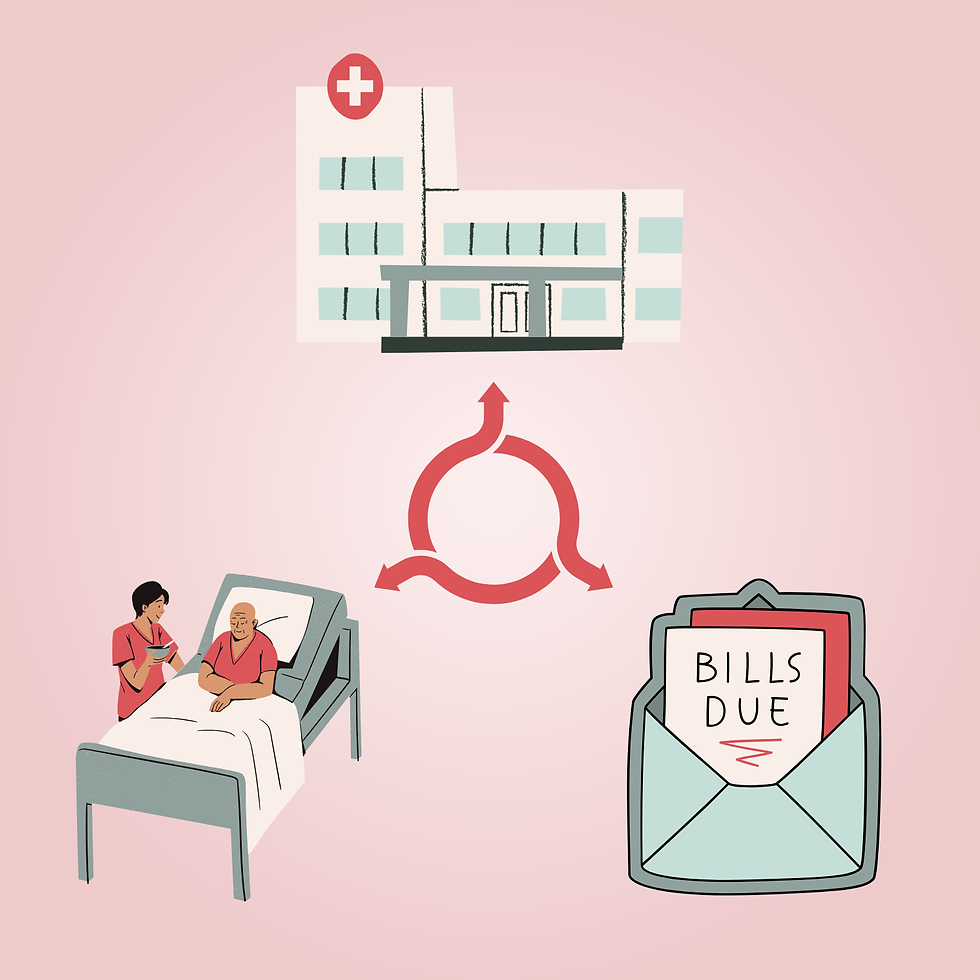Do you need the COVID-19 booster? Is it ethical to get a third dose when many have not had a first?
- Morgan Robinson
- Nov 14, 2021
- 3 min read
Ever since the dreadful March COVID pandemic shut down, there has been one hot topic on the news and everyone's minds: the COVID-19 vaccine. When would it be made? Who would be able to get it? Would it be effective?
Thankfully, we are now months out from this time of heightened uncertainty and the vaccine has been developed, tested, and implemented relatively well, bringing the world to some sense of normalcy. However, questions have recently been raised regarding the necessity and ethicality of the COVID-19 booster shot.

So what exactly is the booster shot? For those who got Moderna or Pfizer, it is another dose of the vaccine given after the protection from the first two shots has begun to wear off over time (1). According to guidelines published by the CDC, iIt is highly recommended that those 65 years or older receive the third immunization at least 6 months after the original round of vaccinations (2). This is no surprise as the vaccine has often been recommended to the older generations first in the past and continues to start with the more elderly and work its way down to children.
But what about those who got the J&J vaccination, as many did at Duke? The premise is the same, another dose of the same vaccine; however, the recommended timeline for receiving this next dose is much shorter, only two months after the last (3). Interestingly, the CDC has issued guidelines saying it is safe to “mix and match” dosing for booster shots (2). As a result, irregardless of which vaccine an individual initially received, he can see effective results from choosing any one of the vaccine boosters.
On the other hand, there are many ethical concerns regarding the vaccine booster, as citizens in many countries have not yet received their first shot. Is it ethical for someone to be getting their third vaccine when some haven't gotten access to their first? It is a tough question considering, as an individual, you are not controlling where the vaccines are going. Should you feel guilty signing up for your booster at, for example, your university where they will be holding the vaccine anyways? In an article written by Matt Shipman for the NC State news, system engineers and vaccine distribution experts Julie Swann and Matt Koci debate some of these ethical considerations. They focus on the efficiency of healthcare supply chains and making the system more equitable. In an economically dominated world it is not surprising that the vast majority of doses (over 80%) have been distributed in countries with high or upper-middle income, such as the U.S. (6). While this is a disappointing statistic that illuminates the need for availability in lower income countries that have consequently experienced higher infection and death rates, the reality is more complicated. The time it would take to transfer the vaccines to many other countries would outrun the expiration date for the vaccines and is very difficult to coordinate. In addition, the U.S. is unfortunately still quite high in case number compared to the rest of the world (approximately 27% of the world's total cases) with such a large population so it is important to continue decreasing cases here to help the overall spread slow (6).
How do you get your booster? Here at Duke, the university has been offering booster vaccines of Pfizer or Moderna since August 23rd for immunocompromised faculty and staff and since November 2nd for students (4, 5). Appointments can be made with Student Health by calling an immunization nurse (919.681.9355) as well as through your Duke email following links sent out by the university. There are various locations available, including Blue Devil Tower adjacent to Wallace Wade Stadium and a quick walk from the BC Plaza. The process is quite efficient, as someone who went through the process recently.
So should you get your vaccine? It is still up to the individual, but the CDC as well as many other sources recommend the vaccine booster 2 months out for J&J recipients and 6 months out for Moderna and Pfizer recipients in order for the individual as well as for the world to return back to a less restricted way of life. The Delta variant, as well as other variants, is still surging among unvaccinated and vaccinated individuals. Anything that can be done to slow or stop the spread is a positive movement for society.
Edited by: Elissa Gorman
Graphic Designed by: Harris Upchurch
References



Comments